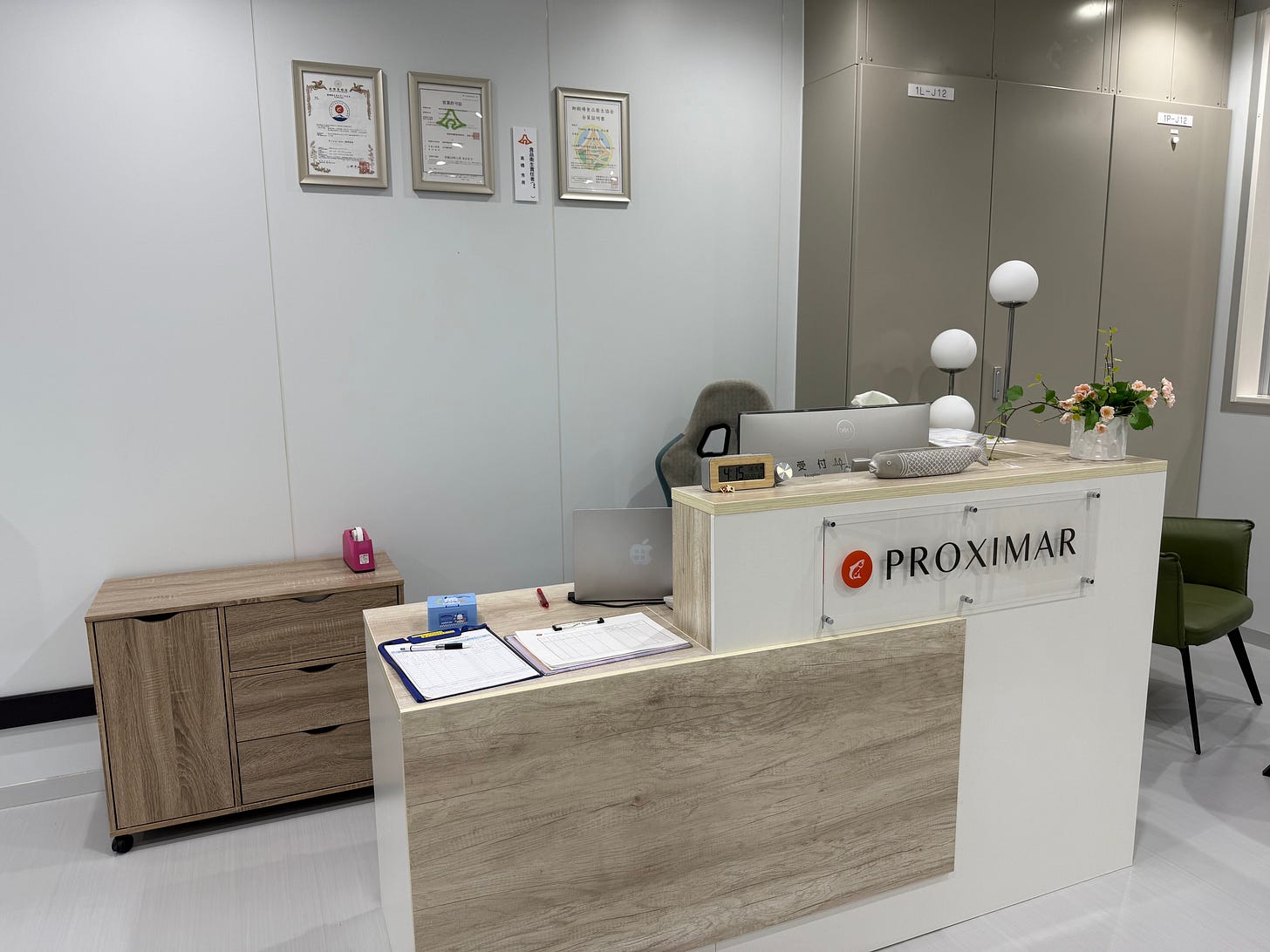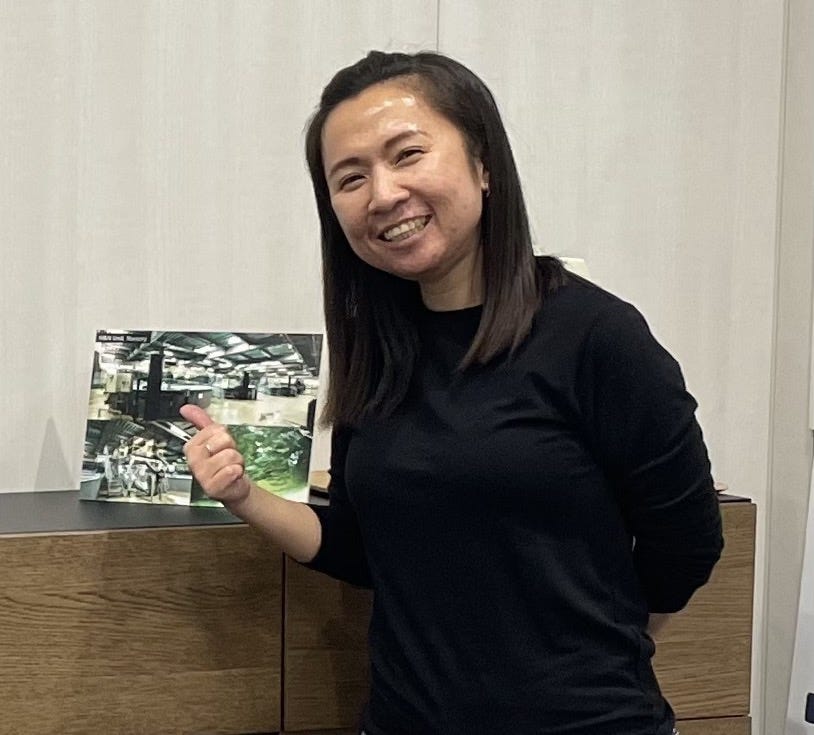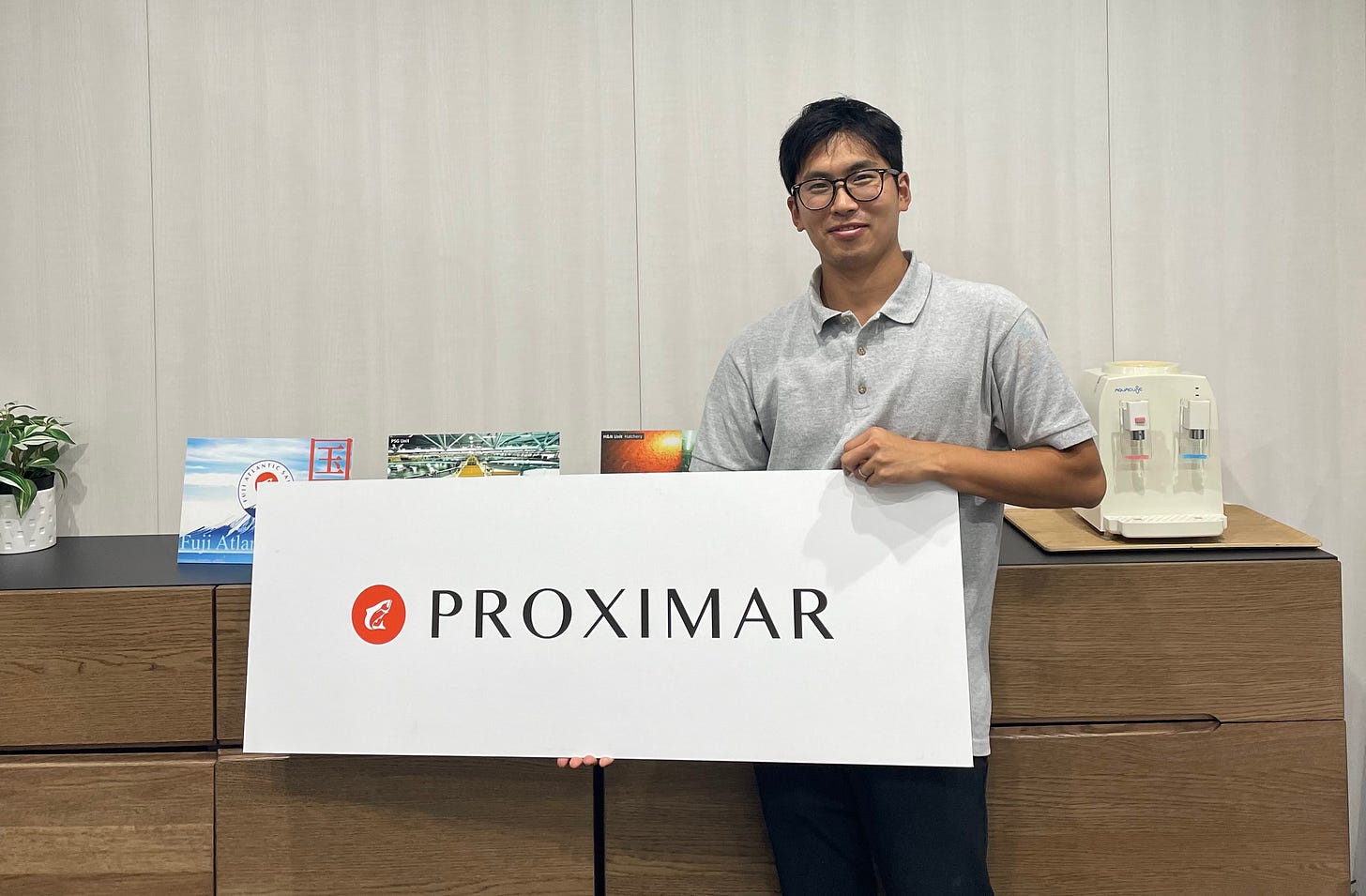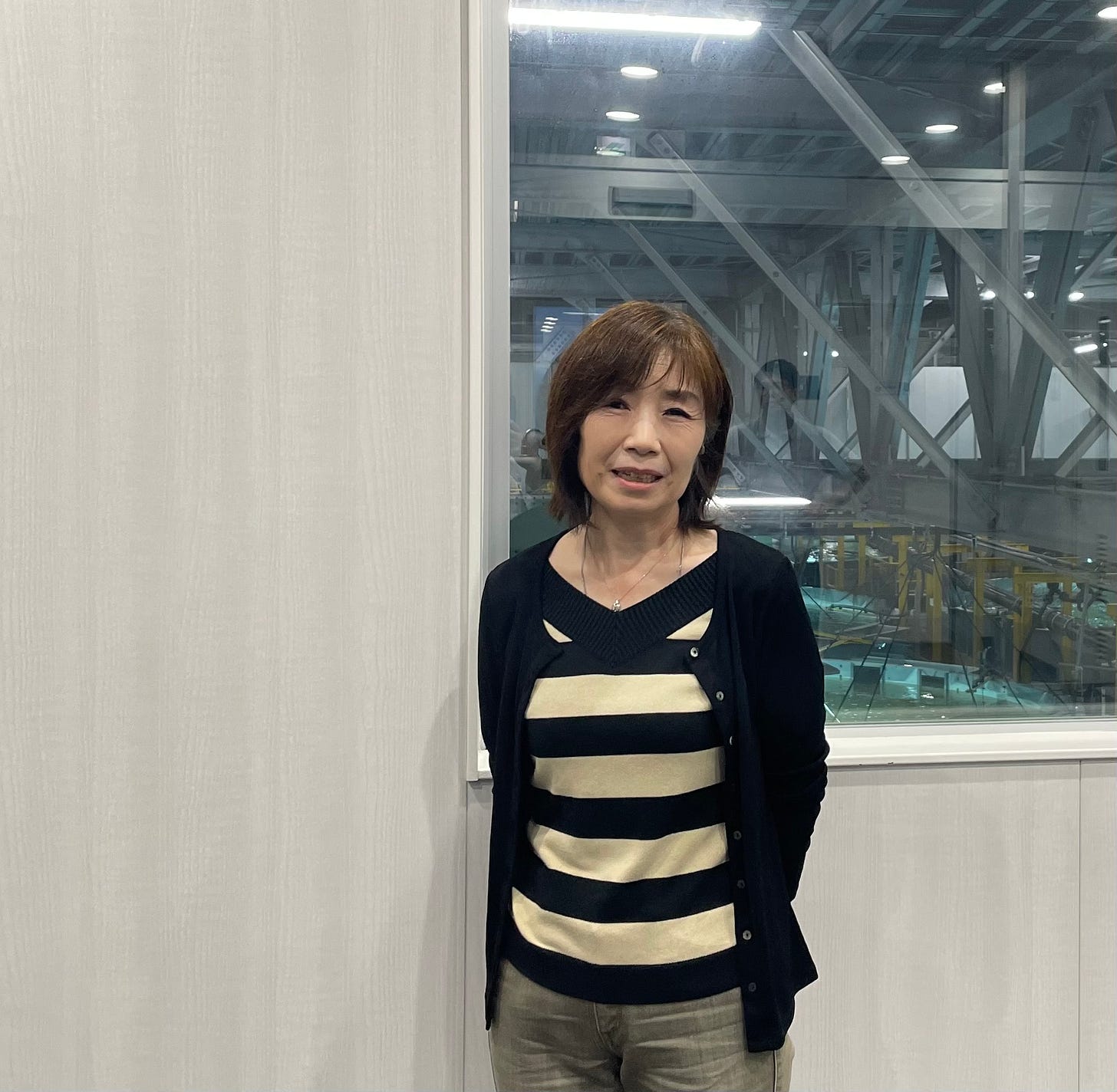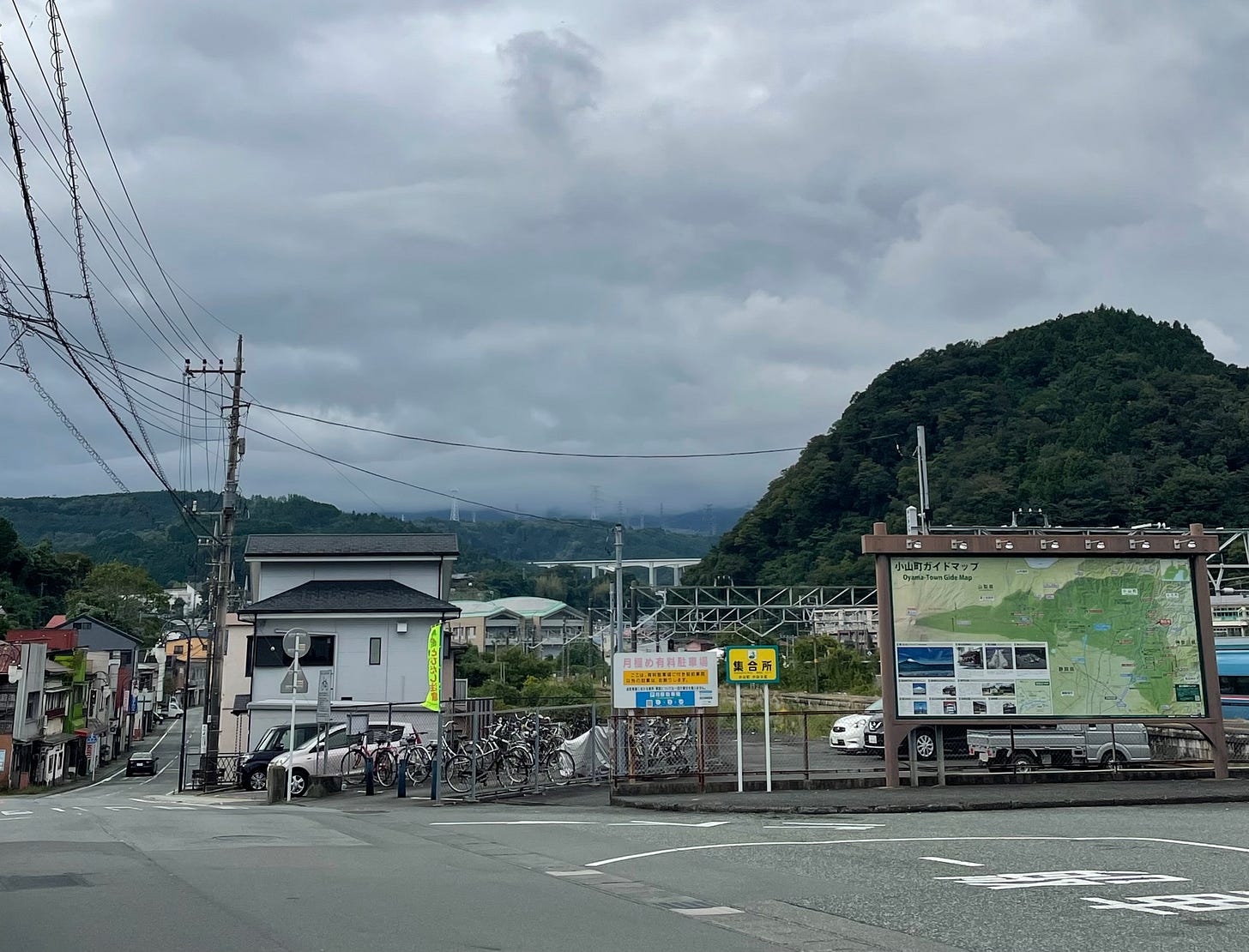Beyond the Surface: How Proximar is Redefining Workplace Culture in Rural Japan
ISSUE 24 | Insights from Proximar and Team
🌟 Proximar: Where Innovation Meets Inclusion
In the shadow of Mount Fuji, something remarkable is happening. Proximar Seafood, a Norwegian aquaculture company, has established a workplace that’s progressive in more ways than one—a facility where cutting-edge RAS technology advances alongside genuine employee fulfilment, where international diversity flourishes in the Japanese countryside, and where workers don’t just clock in—they thrive.
When SIIFIC identified Proximar as an investment opportunity seven months ago, the decision wasn’t based solely on financial projections or technological innovation. It was rooted in something far more fundamental: Proximar’s demonstrated commitment to the three pillars that define SIIFIC’s investment criteria—creating opportunities for youth, empowering women, and revitalising local communities.1 Read more about why SIIFIC invested in Proximar here.
What distinguishes Proximar from countless other companies claiming similar values is simple: they’re actually doing it. After spending time with employees at their Oyama facility, I witnessed firsthand how the company has cultivated a workplace culture where these principles aren’t corporate talking points—they’re the daily reality that shapes every aspect of operations.
Through conversations with CEO Joachim Nielsen, Fish Farm Technicians Savitri Marannu and Kenta Nitsu, and Office Coordinator/Accountant Miwa Igarashi, a consistent narrative emerged: Proximar isn’t just producing premium Atlantic Fuji Salmon—it’s proving that healthy workplace culture drives both social impact and business success. Every single person I interviewed told me that Proximar represents the pinnacle of their professional careers. This isn’t corporate rhetoric—these are authentic voices from employees who have found something increasingly rare in today’s workplace: genuine fulfilment.
The following article explores how Proximar achieves this through three interconnected strategies that directly align with impact investment principles: building an authentically inclusive environment that attracts international talent and young professionals, leveraging RAS technology to create genuine opportunities for women in a traditionally male-dominated industry, and contributing meaningfully to rural revitalisation while prioritising employee wellbeing.
What makes this story particularly significant is its timing. As Japan grapples with rural depopulation, aging demographics, and labor shortages, Proximar demonstrates that solutions exist—but they require rethinking fundamental assumptions about where valuable work happens, who can do it, and what makes employment truly fulfilling. The company proves that you don’t need to sacrifice career ambition for quality of life, that cutting-edge technology can create inclusion rather than exclusion, and that rural communities can host world-class international workplaces.
For impact investors seeking evidence that their criteria can translate into real-world results, Proximar provides a compelling case study. This is the story of how Proximar is getting it right—and why it matters for Japan’s future.
🌍 Building an Inclusive Environment for International Employees
What truly sets Proximar apart is its thriving multicultural workplace—and this starts at the top. CEO Joachim Nielsen, a Norwegian navigating life in Japan, doesn’t see his foreign status as a limitation. He treats it as an advantage, weaving cultural diversity into the company’s DNA. You can read more about Joachim Nielsen and his Proximar journey here.
When I asked Nielsen about the benefits of this approach, he answered:
Nielsen: ‘The strength isn’t just for the company—it’s for our people. Our employees gain something invaluable: they extend their horizons, discovering how things work differently across cultures and places. It’s a learning curve that flows both ways’.
This philosophy permeates every corner of Proximar. The company now employs people from 11 different nationalities, including Danish, Sri Lankan, Chilean, Thai, Australian, Vietnamese, as well as Japanese and Norwegian. Nielsen’s vision is unequivocal:
Nielsen: ‘Before anything else, we want to welcome everyone. We want anyone who wants to work for us as long as they are qualified. Nationality, gender, whatever it is, it doesn’t matter to [Proximar]’.
Nielsen’s own experience as a foreigner in Japan has shaped Proximar‘s understanding of the challenges facing international employees. The Norwegian influence has helped build what he terms a ‘good work culture’—one centred on inclusion, openness, transparency, and keeping employees in the loop. As Nielsen explains, this mirrors what they see back in Norway: being happy and comfortable at work helps employees build the company.
During my interviews with employees from across the globe, I didn’t just observe diversity—I felt genuine community, the kind that transcends borders and backgrounds. Perhaps no one embodies this better than Savitri Marannu.
Marannu, a 39-year-old Sri Lankan technician, provides compelling testimony about how Proximar exemplifies inclusive rural employment in Japan. After completing her master’s degree in Japan around 10 years ago, she returned to Sri Lanka before discovering Proximar online.
Marannu: “I got lucky that I came across [Proximar’s] website while they were looking to grow their company. Thinking that I had nothing to lose, I applied for the technician position and thought, whatever they’ve got, I’ll take it.”
What happened next exemplifies Nielsen’s inclusive philosophy in action. The company’s comprehensive support system—from visa sponsorship to housing assistance—went far beyond what most Japanese companies offer foreign workers. Most remarkably, Marannu’s manager personally provided daily transportation for three months during her transition.
Marannu: “[Proximar] helped me out a lot. Getting a work visa for Japan is very difficult, but they made the process so easy. Then, when I arrived, they helped with my transportation and housing. I was especially nervous about the transportation—getting to and from work. My manager, who I had never met before, picked me up and dropped me off from work every day for three months after I started.”
This level of care starkly contrasts with traditional Japanese companies that expect foreign workers to navigate relocation independently.2 Such dedicated support speaks volumes about Proximar‘s commitment to its workforce—where talent and dedication matter far more than passport stamps.
Marannu’s experience extends beyond practical support. She ranks Proximar as her number one job across all previous positions, primarily due to what she describes as a ‘family feeling’ among colleagues. The company’s open-minded, egalitarian culture brings together employees from all over the world, cultivating an environment where age and nationality don’t create hierarchies. Instead, younger and older employees learn from each other in a genuinely collaborative atmosphere.
Perhaps most striking is Marannu’s strong preference for rural work after experiencing both urban and countryside environments. She cites easier transportation without traffic jams or complex transit systems, access to nature for recreation, cleaner air, and an overall more peaceful quality of life. Living close to her workplace and being able to enjoy the natural surroundings during her free time represents a significant improvement over urban employment.
This multicultural environment, combined with the balance between Japanese work ethic and international perspectives on work-life balance, creates exceptional job satisfaction that validates SIIFIC’s investment thesis: that Proximar represents a replicable model for addressing Japan’s rural labour challenges while creating genuinely desirable employment opportunities outside major cities.
Opportunities For All
A key point for investment identified by SIIFIC back in March of this year was how Proximar prioritises creating opportunities for youth, women, and the local community. According to the Impact Performance Report, SIIFIC is committed to ‘cultivating local prosperity’ through ‘quality job creation and sustainable economic growth’.3 With regard to Proximar, SIIFIC’s investment was partially based on how the company creates meaningful employment opportunities for underrepresented groups.
👨🎓 Supporting Young People
As well as Savitri Marannu, I spoke to fellow fish farm technician Kenta Nitsu, who joined Proximar after graduating from Hokkaido University in his early twenties. Nitsu represents a large sector of young people working for Proximar, where the average employee age is around 30-35. While many Japanese youth are leaving to work abroad due to lack of opportunity and wage gaps, Proximar cultivates an inclusive workplace for young people.4
Nitsu: ‘In my last year [of university], I went to Norway on exchange. I met someone who told me about a new project in Japan, and that I should keep an eye out when I was back. Back in Japan, I googled it, found Proximar, and that’s how I ended up here.’
Nitsu’s journey represents both a physical and professional escape—moving from Tokyo’s suffocating daily commute to nature-oriented locations while avoiding the traditional 10-year path to meaningful responsibility in Japanese corporate culture. He found work that aligns with his passion for marine biology and outdoor lifestyle, engaging in hobbies like cycling, swimming, and fishing. However, this path wasn’t straightforward, as Nitsu discussed the difficulties facing young people finding work in aquaculture.
Nitsu: ‘In Japan, the fishery industry is really traditional. It’s still localised and family owned, and businesses are very small. Generally, it’s considered a very unstable job that is underpaid and difficult to get into.’
Despite his passion for marine biology, Nitsu considered following a more conventional career path due to limited opportunity in Japanese aquaculture. In Japan, there is increased pressure to find employment after university, where ‘almost all students must start the job search process before graduation’ and ‘accept a job offer by the time they graduate’.5 However, Nitsu’s experience in Norway directed him toward Proximar, which provided him with the opportunity to work in the sector he loves.
Nitsu: ‘It’s been a great opportunity. Working [at Proximar] is a really big milestone; we are the first producers of Atlantic salmon in Japanese fishery history. I really enjoy being part of this big movement.’
The transformative power of Proximar’s international work culture is central to Nitsu’s story. His key insight— ‘We wouldn’t have made it this far if this was a Japanese company’—reveals his belief that innovation requires breaking from cultural norms. At Proximar, he experiences meritocracy over seniority, and flexibility over formality in communication styles that focus on goals rather than hierarchy. This approach has not only enabled Nitsu to pursue his passion but also represents an industry transformation, challenging the perception of fishery work from ‘one of the hardest, most underpaid jobs’ to a competitive, attractive career.
When asked whether he would be doing a job he loved so much if it wasn’t for Proximar, Nitsu responded:
Nitsu: ‘It is rare for a company - especially in the fishery industry - to support young people like Proximar has. A lot of them require at least three years experience. If Proximar didn’t employ me at the time they did, I don’t think I would be working in this industry.’
👩💼 Supporting women
Proximar also claims to actively support gender diversity and equity. Through RAS technology and progressive workplace culture, the company is challenging traditional gender norms in the fisheries industry.
In fact, when I asked Marannu the main reasoning why Proximar was so attractive to her, she replied:
Marannu: ‘Easy - the RAS technology. I was so excited to be able to use it’.
Gender data for modern closed-loop land aquaculture ventures like Proximar remains scarce—these operations are simply too new. Traditional fisheries have long operated along gender lines: women dominate land-based processing and administration, while men work the boats and nets.6 But Proximar‘s RAS technology disrupts this pattern entirely. Without traditional ‘fishing’ to speak of, the company is quietly rewriting the rules of who can work in aquaculture—and how.
As Marannu explained when discussing her experience as a foreign employee, the technology fundamentally changes what’s required to work in aquaculture:
Marannu: ‘There is definitely a culture of physical power and toughness in the aquaculture industry - because a lot of the work is very physical, it typically limits the amount of women engaged in it. But there’s a lot of automisation here at Proximar. Hopefully it will increase the number of female workers in the future - because everyone can operate the machinery here.’
The impact of this technological shift is already visible. While women currently represent 10-20% of Proximar‘s workforce—making the company a major employer of women in the Oyama area—women hold 40% of board positions at Proximar‘s Norwegian parent company.7 While the Japanese entity’s board currently consists of two male members, the company’s broader commitment to gender equity is evident in its workforce composition and inclusive culture. These aren’t just numbers on a diversity report; they’re evidence of a company actively dismantling barriers in an industry where women have historically been sidelined. As Proximar continues to grow, its foundation of genuine inclusion positions it to become a beacon for gender equity in aquaculture—proving that pioneering technology and progressive values can advance hand in hand.
🏘️ Supporting the local community
Proximar‘s commitment extends beyond its facility walls into the surrounding community, where it serves as a catalyst for rural revitalisation. Nestled in Oyama town, Shizuoka prefecture, the company has transformed the local employment landscape, creating opportunities in a region where such prospects were once scarce.
Among those who have benefited from this transformation is Miwa Igarashi, office coordinator and accountant, whose personal journey mirrors the company’s mission. Having grown up in Oyama town, Igarashi’s story reveals how Proximar is enabling locals to build meaningful careers without sacrificing being close to home.
Igarashi: ‘I worked for a Danish company for thirteen years, where I was assigned to work in both Gotemba and Yokohama. After leaving the Danish company, I worked for several Japanese companies before, about five years ago, I decided to return to my family in Oyama, where I grew up. I always dreamed of working for another Scandinavian company, and it was perfect because I eventually found Proximar back in Oyama.’
When asked about Proximar‘s contribution to rural revitalisation, Igarashi spoke about the positive partnership between the company and local people, noting how the arrangement benefits both sides—the company gains dedicated employees while locals gain meaningful employment opportunities. Beyond employment, she highlights how the company collaborates with Oyama city and local universities, creating a network of mutual support that strengthens both the business and the community.
For Igarashi personally, the move represents more than professional opportunity. Her 10-minute commute is ideal, and the proximity to Mount Fuji—visible from work on clear days—reminds her daily why she values this balance. She notes that while city life offered excitement and convenience in her younger years, her priorities have evolved. Now in her 50s, she appreciates the combination of professional fulfilment and personal well-being that working in the countryside provides.
What distinguishes Proximar from typical rural employment, Igarashi emphasises, is the international work culture it brings to the region. The company maintains the open communication style and cultural diversity she valued in her previous Scandinavian workplace, but now she can access it without leaving her hometown. This combination—progressive work environment meeting countryside lifestyle—represents exactly the kind of opportunity she believes is increasingly attractive to workers of all ages, particularly as more people recognise that career ambition and life balance need not be mutually exclusive.
🏔️ Oyama Town and mental wellbeing
Proximar‘s location in Oyama Town also benefits both the company and its employees in other ways. Nielsen suggests that the plant’s location at the bottom of Mount Fuji has helped their product marketing and branding.
Nielsen: ‘Being surrounded by nature is important for our branding and marketing. Not only do we use the fresh water surrounding Mount Fuji for our tanks, but being generally associated with the green environment helps people to understand our commitment to sustainability’.
Fuji Atlantic Salmon—the name itself carries weight. More than mere marketing, it captures something essential: the pristine waters cascading from Mount Fuji, the promise of purity, the marriage of Norwegian innovation and Japanese reverence for nature. For consumers, the name doesn’t just identify a product; it tells a story of sustainability they can taste. The association with Mount Fuji—one of Japan’s most iconic natural landmarks—immediately conveys quality, naturalness, and environmental consciousness in ways that conventional branding could never achieve.
Yet perhaps the most unexpected benefit of Proximar‘s rural location emerged in every conversation I had: working in Oyama Town, employees told me, has transformed their sense of wellbeing. The countryside setting offers more than scenic backdrops—it provides a fundamental shift in how people experience their daily lives, both during and outside work hours.
Marannu: ‘I prefer working in the countryside to the city. There’s much less happening, and I love being surrounded by nature and beautiful scenery.’
Nitsu: ‘While I grew up around Tokyo, I moved because I hated it. Living in the countryside, I do much more in my spare time. I like cycling, swimming and fishing, so I guess my hobbies really match life in the countryside.’
Igarashi: ‘I have experienced both [working in the city and the country]. When I was young, the city was exciting. But now, I love being around nature - especially being close to Fuji-san.’
These testimonies reveal a consistent pattern: the countryside isn’t simply a pleasant setting for work—it actively enhances how employees live. The proximity to nature enables outdoor activities that would be difficult or impossible in urban settings. The slower pace reduces stress and creates space for personal pursuits. The daily sight of Mount Fuji serves as a reminder of what matters beyond the office walls.
Proximar has discovered something remarkable: you can have it all. Just 1-2 hours from Tokyo’s urban intensity, Oyama Town offers employees what increasingly feels like a luxury—a slower, more intentional way of life. The location provides the best of both worlds: access to Japan’s capital when needed, while maintaining the tranquility and natural beauty that urban environments cannot offer. Here, Proximar isn’t simply creating jobs in the countryside; it’s proving that rural revitalisation and career fulfilment aren’t mutually exclusive. The company has crafted a model where professional opportunity meets quality of life, where ambition doesn’t demand sacrificing peace, and where the countryside becomes not a compromise, but a compelling choice. In doing so, Proximar challenges the conventional wisdom that meaningful careers require urban settings, demonstrating instead that the right combination of mission, culture, and location can make rural employment not just viable, but genuinely desirable.
❤️ Proximar: Where Workers Love What They Do
My visit to Proximar confirmed what SIIFIC identified seven months ago: this company represents a compelling model of how foreign innovation can successfully integrate with Japanese markets while creating meaningful social impact. Through its commitment to inclusion, support for underrepresented groups, and investment in local communities, Proximar embodies the principles that guide SIIFIC’s investment strategy.
My conversations with Nielsen, Marannu, Nitsu, and Igarashi unveiled something remarkable: a workplace culture where diversity isn’t merely tolerated—it’s celebrated. What struck me most was the genuine sense of multiculturalism woven throughout Proximar, where employees consistently described a ‘family atmosphere’ that transcends cultural boundaries. Perhaps the most poignant example came from Igarashi, who revealed that the company canteen has evolved into something far more significant than a lunch space—it’s become a vibrant hub of cross-cultural exchange. Here, employees from diverse backgrounds arrive with traditional dishes from their homelands, sharing meals and stories with colleagues. Some even prepare recipes featuring Fuji Atlantic Salmon cultivated right there at Proximar, creating a beautiful circle of cultural integration and company pride.
But here’s what truly matters: every single person I interviewed told me that Proximar represents the pinnacle of their professional careers. This isn’t corporate rhetoric or carefully rehearsed testimony—these are authentic voices from employees who have found something increasingly rare in today’s workplace: genuine fulfilment. The evidence is clear: Proximar isn’t just talking about building a healthy workplace culture—they’re living it, breathing it, and proving that it’s possible.
Miura, R. (2025, April 25). Why we invested in Proximar. SIIFIC. https://siific.substack.com/p/why-we-invested-in-proximar
Voyen. (2025). Why 65% of foreign worker targets remain unfilled in 2025. https://voyen.com/journal/why-65-of-foreign-worker-targets-remain-unfilled-in-2025/
SIIFIC Impact Capital. (2025, April). SIIFIC impact performance report April 2025 [PDF]. https://file.notion.so/f/f/329930db-9219-4036-9d89-71f6006c88fd/5ab8fe74-e9b1-4c80-97fa-2c523690d0be/SIIFIC_Impact_Performance_Report_April_2025_vFinal.pdf
Kawai, R. (2024, June 28). Japanese Emigration Overseas. Discover Nikkei. https://discovernikkei.org/en/journal/2024/6/28/nihonjin-no-kaigai-ijyu/#:~:text=As of 2023%2C there are,of Japanese Nationals Living Overseas
Hirao, T. (2025). Obtaining initial employment in the Japanese youth labor market. Hiroshima University Repository. https://hiroshima.repo.nii.ac.jp/record/2040641/files/DaigakuRonshu_58_243.pdf
Food and Agriculture Organization of the United Nations. (n.d.). Gender in fisheries and aquaculture. https://www.fao.org/gender/learning-center/thematic-areas/gender-in-fisheries-and-aquaculture/en
Proximar Seafood. (n.d.). Our people. https://www.proximarseafood.com/our-people


